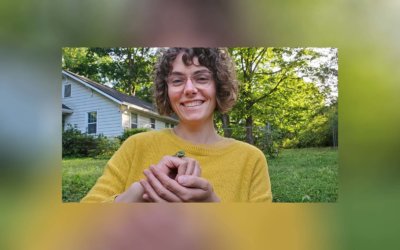The following is a submission to THINK ACT CONNECT, a platform to share action, inspiration, work, resilience, and justice
A lot has happened in the last couple of months! Coronavirus has been declared a global pandemic, and like many of you I am sheltering in place. Chapman University (where I teach) has moved to online education for the time being, and I am learning how to navigate Zoom calls with my students. The good news in all of this is that physical distancing works to flatten the curve and lessen the toll the pandemic will wreak. Studies show that this blunts the spread of the disease, and we must prepare ourselves for more of the same in the coming months.
I also write to let you know that one of my oldest friends and comrades, Ed Hawley, passed away on March 11 at the age of 96. Ed was on the frontline of the fight against racism and colonialism, first as co-pastor of my family’s church in Chicago, Warren Avenue Congregational, and then through his work in Tanzania and Kenya. At Warren, Ed married Eduardo and Janet Mondlane and continued the desegregating of Warren Avenue Church, including introducing bilingual services for the Garfield Park neighborhood’s growing black and Puerto Rican communities. In Tanzania, Ed worked closely with FRELIMO, and when he returned to the United States he continued working in support of the liberation movements.
There is no sugarcoating it: these are very difficult times. The United States currently leads in the number of cases, but this will not be solely an issue for the Global North. African arts and culture lost a giant on March 24, when Manu Dibango passed away in Paris from COVID-19, and this disease is beginning its spread in Africa.
Listen to Manu Dibango’s Soul Makossa
African states only began to see cases in the last couple of weeks, but as of today, South Africa has over 1,300 cases, and Nigeria is reporting well over a hundred cases as well. Alarming predictions and models show that this will devastate economies throughout the continent as well while simultaneously straining health care systems gutted by neoliberal economic policies.
For more background and updates on COVID-19 in Africa, see Making the Road collaborator Bill Minter’s AfricaFocus Bulletin.
In the midst of all of this Cyril Ramaphosa has stepped into the role of leader (unlike our current president!). On March 23, Ramaphosa declared a national lockdown that will last for a minimum of three weeks, and it is among the most comprehensive of any such lockdown globally. This comes with aggressive screening and testing, though the challenges in organizing resources to protect vulnerable people from the economic fallout will be considerable.
Of course, events will not stop unfolding solely because of coronavirus. In Mozambique, killings of civilians in the Cabo Delgado province have worsened in recent weeks. The South African government is considering structural reforms to try and improve the country’s credit rating, and the shape of those reforms could worsen inequality in the country. Here in the United States, conservative politicians are using coronavirus as a cover to attack abortion access and pass discriminatory legislation.
Now more than ever, Samora Machel’s vision of solidarity is relevant in the fight against coronavirus, discrimination, and predatory capitalism, all of which enable each other. Speaking in Italy in 1973, he said “In this context, solidarity is not an act of charity, but mutual aid between forces fighting for the same objective.” As others have observed, coronavirus has highlighted the gutting of any social safety net in the United States, and it will continue to lay bare global inequality. We are now all struggling for the same objective.
Luta.
Prexy
About Prexy Nesbitt '67
“Prexy” (Rozell W.) Nesbitt is a graduate of the Antioch College Class of 1967.
Nesbitt has spent more than five decades as an educator, activist, and speaker on Africa, foreign policy, and racism. He was a national and international leader supporting the struggle to end apartheid in South Africa. Nesbitt’s life and work have been widely profiled, and he makes an appearance in the two-part PBS series Black America Since MLK: And Still I Rise in which he talks about his involvement as Martin Luther King Jr.’s bodyguard during a 1966 march in Chicago. Nesbitt is currently the Presidential Fellow in Peace Studies at Chapman University’s Department of Peace Studies.



Thanks, Prexy. Good to read your words. I so appreciate the news your bring and your perspective.
Best,
Mary